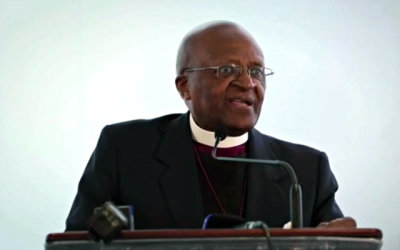Assisted Suicide Legalization Proves Divisive for Anglican Communion; Archbishop of Canterbury Against Bill

A debate over legalizing assisted suicide for the terminally ill in the U.K. has unfurled in the Anglican Communion after a number of former Anglican archbishops backed a proposed bill, while the Church of England confirmed its opposition.
"Some people opine that with good palliative care there is no need for assisted dying, no need for people to request to be legally given a lethal dose of medication," Anglican archbishop emeritus Desmond Tutu, a Nobel Peace laureate, wrote for The Observer.
"That was not the case for Craig Schonegevel. Others assert their right to autonomy and consciousness – why exit in the fog of sedation when there's the alternative of being alert and truly present with loved ones?"
Tutu refers to Schonegevel, a 28-year-old South African who suffered from neurofibromatosis and ended up killing himself because doctors were unable to end his life.
The assisted dying bill is set to be debated in the House of Lords on July 18th, and the Church has called for a public inquiry into the issue.
The bill would make it legal for adults in England and Wales with less than six months to live to be granted assistance in ending their own life.
The process would require two doctors to confirm that the patient seeking to terminate his/her life had reached the decision independently.
"The Assisted Dying Bill also raises issues with regard to the sort of society we wish to nurture and build. A compassionate, cohesive society requires fine balancing of laws, customs and shared moral principles. The Church of England has considerable experience of helping to deliver end of life care through hospital and hospice chaplaincy and through pastoral ministry in parishes; we are aware of how easily this fine balance could be upset," the Church of England's briefing to Members of the House of Lords read.
The briefing listed several reasons, including the ethical burden it places on doctors, for why the Church opposes the bill.
"Most doctors do not want to play a role in assisted suicide as the BMA and the Royal Colleges have made clear. If the Assisted Dying bill were to become law it would inevitably lead to 'doctor - shopping', a problem already encountered in jurisdictions that permit assisted suicide," the Church wrote.
Anglican leaders have shown various viewpoints on the issue – while former archbishop of Canterbury George Carey has said that he would support a bill that would allow assisted suicide in some cases, Justin Welby, the current Archbishop, has called the legislation "mistaken and dangerous."
"The fact is that I have changed my mind. The old philosophical certainties have collapsed in the face of the reality of needless suffering," Carey wrote in an article for The Daily Mail earlier in July.
"Today we face a central paradox. In strictly observing the sanctity of life, the Church could now actually be promoting anguish and pain, the very opposite of a Christian message of hope," he argued.
Responding to the former Archbishop's statement, the Bishop of Carlisle, the Rt Rev James Newcome, said:
"We were surprised by both the content and the timing of [Lord Carey's] article, but recognize that actually, quite a lot of good things have come out of it, including that it has brought some of the issues to the forefront of public discussion and highlighted just what an important issue this is."
Newcome added, according to BBC News: "Certainly our hope as the Church of England is that the Falconer Bill will be withdrawn and that because this is such an important issue it could be discussed at length by a Royal Commission."
An online 2012 poll by YouGov found that the majority of British people would support a bill legalizing assisted suicide for the terminally ill. The survey of over 1,700 British adults found that 69 percent would back such a change in the law, while 17 percent would oppose it.





















